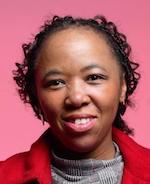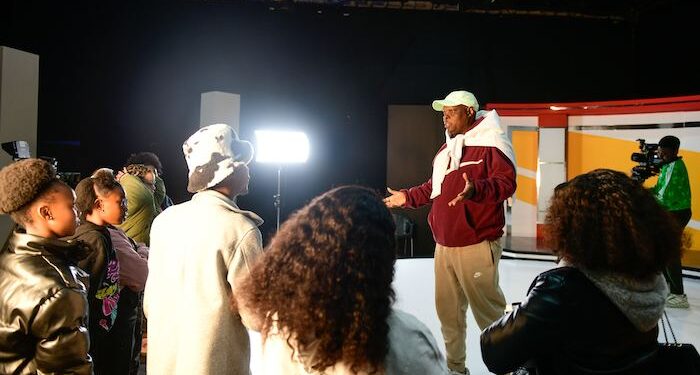Artificial Intelligence is transforming creativity at its core, reshaping how stories are written, produced, and shared. From scriptwriting to post-production, it is changing every layer of the film and TV production process. For young African storytellers, this isn’t just a disruption; it is a new beginning.
Technology has always influenced the way we create. From motion control cameras to digital animation, every innovation has opened new doors for filmmakers and artists. But AI represents more than just another tool; it is a whole new language of creation.
It doesn’t just assist, it interprets, predicts, and sometimes even creates. So, the challenge for today’s creatives is not whether to use AI, but how to guide it without losing the human heartbeat that gives stories meaning.
Unlike previous innovations, what defines AI’s impact on creativity is its speed and autonomy. In 2023, Hollywood writers and actors staged historic strikes to demand protection against AI-generated work, forcing the industry to confront how automation could reshape jobs.
New roles
Although AI is changing workflows, it is also opening new roles. Creative coders, virtual production artists, and editors fluent in both storytelling and software are fast becoming the backbone of modern production.
Across Africa, this shift is already underway. Triggerfish Animation Studios has used AI-assisted rigging to streamline its animation pipeline. Netflix Africa employs AI tools to improve subtitling and visual enhancement, helping stories travel further across languages.
In South Africa, Showmax Originals uses AI insights to better understand audiences and refine content strategy. These examples show that when technology is led by creativity, it doesn’t diminish the storyteller; it actually empowers them.
Outlook and opportunity
Independent research shows the scale of change underway. The World Economic Forum’s Future of Jobs Report 2023 identifies AI and Machine Learning Specialists among the fastest growing roles over the next five years. PwC’s 2025 AI Jobs Barometer finds that AI skills often equal higher pay and that skills evolve faster in jobs most exposed to AI, reinforcing the urgency for education that blends culture with code.
Still, one truth remains. No algorithm can replace human emotion or cultural depth. Africa’s storytelling power has always come from our lived experience, from our oral traditions, languages, music, and shared memory. Those are things that cannot be manufactured. As technology advances, these deeply human elements become even more valuable.
That is why the future of creative education must go beyond teaching software. It must teach critical thinking, how to ask the right questions, how to make ethical choices, and how to preserve the soul of a story in a data-driven world.
At Media City Academy, we believe that learning to use AI is only part of the journey. The real goal is to create storytellers who can merge cultural wisdom with technological fluency to shape the creative industries of tomorrow.
Accelerating growth
Globally, much of the debate around AI has been driven by fear of job losses, imitation, or creative decline. But in Africa, we have a unique opportunity. Our creative industries are still expanding and defining their global identity. Used responsibly, AI can accelerate that growth by lowering costs, improving access, and unlocking creative independence for young storytellers who once lacked the means to produce at scale.
If we want Africa’s stories to thrive, we can’t simply use the tools of the future; we must help design them. That begins with education systems that blend imagination, ethics, and innovation. It begins with storytellers who understand both culture and code.
Artificial Intelligence is here to stay. The question is how we choose to use it, to imitate what already exists or to push the boundaries of what is possible. At Media City Academy we choose imagination. Because while the algorithm may be global, the soul of local storytelling is, and must remain, proudly African.

Zenobia Simelane is the head of school at Media City Academy in Johannesburg, South Africa, a next-generation creative and media institution preparing young storytellers for the intersection of film, television, and technology. It is South Africa’s first accredited campus based inside a fully operational studio. Accredited by SAQA and MICT SETA, MCA combines qualifications with professional credits earned on live productions.














